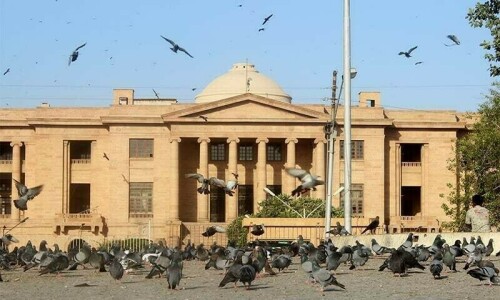THIIS is with reference to the trilateral summit held in Kabul on July 19. Low on substance and high on resolve, the summit failed to answer the only concern that all those associated with ‘future security and stability of Afghanistan’ have: will the Taliban be willing to become part of the political process? Will they agree to participate in peace negotiations that may lead to the resolution of the Afghan conflict?
Without answers to these questions, the participants of the summit only hoped for a peaceful transition of Afghanistan. Much that the participants of the summit hoped, the Taliban plan instead. Why would they want to negotiate with the West? Why now when they hold the position of strategic ascendancy. There is not one but many factions of the Taliban, and the majority of the followers must be itching to take revenge from a foreign occupation force that failed to achieve a decisive victory.
It was not the US policy to negotiate with terrorists. But today the abandoned alternative, ‘negotiating with the terrorists’, seems to be the most-sought-for solution.
If ‘dialouge’ is the weapon of the weak, then the Taliban will not be so naïve not to understand why they are being offered dialogue.
They understand that the time for them to hit back at the coalition forces is now and during the process of withdrawal and even beyond that, against the regime in Kabul. They would be least interested in dialouge. Not before they have taken their revenge.
The triparte sumitt also recognised Pakistan as the facilitator who will bring the Taliban on the negotiating table. Pakistan was also recognised as a country that has a big role to play in the Afghan reconciliation and peace process.
While commitments at the summit were made by Pakistan’s PM, Afghan policy is tightly controlled by the army. The real question is: will the Pakistan army allow ‘anyone else’ to play politics and have a final say in a matter that the army considers to be of vital national interest? Will the Pakistan army commit the Taliban (Haqannis) to ‘peace agreements’ without assigning them a role in future to neutralise the Indian influence in Afghanistan?
The Pakistan army believes that the Taliban (Haqannis) are its strategic assets. It will commit them to peace only if those (Taliban) being committed to violence against Pakistan from across the border are stopped.
As long as ‘proxy wars’ are the shadowy instrument of policies of stakeholders in Afghanistan, strategic assets such as ‘Haqannis’ and others will continue to be harboured, nurtured, protected and utilised.
To achieve peace in Afghanistan what is required is a trilateral summit involving Afghanistan, India and Pakistan. The leadership of these countries must agree to stop fighting proxy wars. Until such an agreement is not there between these countries, the Taliban will be happy to be utilised to fight, and unfortunately for all peace will remain elusive.
M. ALI EHSAN Karachi










































